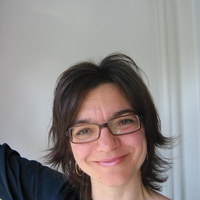Gitte Balling
University of Copenhagen, IVA, Faculty Member
Research Interests:
Research Interests:
The article analyses surveys of cultural participation and discusses how they convey certain concepts of users and culture. The article aims to develop a more nuanced and contemporary picture of cultural participation and notions of the... more
The article analyses surveys of cultural participation and discusses how they convey certain concepts of users and culture. The article aims to develop a more nuanced and contemporary picture of cultural participation and notions of the non-user. The article shows a shift in how the user is constructed through the surveys from 1964 until today. This movement spans from a citizen to a customer perspective. Furthermore the article addresses the problem that the new concept of participatory culture does not necessarily take place within the institutions which is measured in surveys on cultural participation. The concept of participation conveys different meanings, therefore culturally active and contributing citizens may count as non-users in the surveys. The article concludes that it might be worth considering measuring leisure time activities as it was done in the 1960s and 1970s instead of the focus on attendance which is measured today.
Research Interests:
This article discusses a model that can be used in order to analyse notions on literature promotion in public libraries. The model integrates different issues which interact with how literature promotion is understood and thought of in... more
This article discusses a model that can be used in order to analyse notions on literature promotion in public libraries. The model integrates different issues which interact with how literature promotion is understood and thought of in public libraries. Besides cultural policy we regard the logics of new public management (NPM) and professional logics in the field of public libraries. Cultural policy along with the identification of underlying logics present among politicians, government officials, managers and librarians/promoters of literature, play an important part in creating an understanding of literature promotion in Danish libraries. Thus the basic premise for the development of the model is that cultural policy (Policy) has an important influence on notions on literature promotion and other activities in public libraries, but that cultural policy must be seen in some kind of interaction with the logics of the profession (Profession) and NPM (Public management). The article further examines interrelations between Policy, Profession and Public Management. The article identifies a consensus between the NPM logic and the professional logic of the librarians regarding issues of measurement and visibility, and between cultural policy rationales and the NPM logic regarding the view on users. Finally a conflict regarding the goals of policy and librarians is identified. The article concludes that NPM as a means does not colonize the ends of cultural policy and literature promotion, but that the instrumental aspects of cultural policy in the field of public libraries have difficulties gaining access to the practice in public libraries.
Research Interests:
It occurs in the meeting – on cultural policy and cultural mediation with children in focus. This article investigates cultural policy for children in Denmark with particular focus on the period from the creation of the Ministry of... more
It occurs in the meeting – on cultural policy and cultural mediation with children in focus. This article investigates cultural policy for children in Denmark with particular focus on the period from the creation of the Ministry of Culture in 1961. The analysis of cultural policy for children is based on concepts taken from the cultural policy research and the research in children’s culture. The aim of the article is to examine which views on children, youth and culture that have shaped the cultural policy discourse and how the views on children, youth and culture have influenced cultural mediation strategies. My hypothesis is that the view on children has influenced the way we perceive the user of culture in the broadest sense so that today cultural mediation strategies developed for children and young people is used in relation to the entire population.
Research Interests:
... In The Reading Club, the moderator acts as a member on equal terms with the other members. This is also seen in the fact that the members do not act differently in relation to the moderator than towards other members. The authority... more
... In The Reading Club, the moderator acts as a member on equal terms with the other members. This is also seen in the fact that the members do not act differently in relation to the moderator than towards other members. The authority that follows the role as librarian in the ...
Research Interests:
Research Interests:
Research Interests:
Research Interests:
I forelæsningen fortæller fortæller Gitte Balling om, hvad der karakteriserer en god læseoplevelse.
